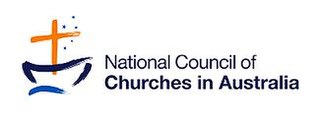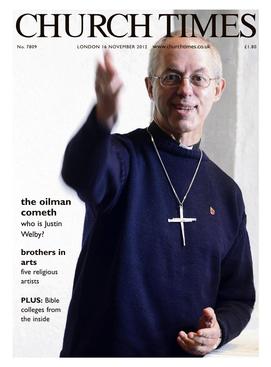
A chaplain is, traditionally, a cleric, or a lay representative of a religious tradition, attached to a secular institution, or a private chapel. The term chaplaincy refers to the chapel, facility or department in which one or more chaplains carry out their role.

Lancaster University Chaplaincy Centre, on the campus of Lancaster University in the United Kingdom brings together the many faith groups represented on the campus and in the wider community.
The Iona Community, founded in 1938 by George MacLeod, is an ecumenical Christian community of men and women from different walks of life and different traditions within Christianity.

The Alpha course is an evangelistic course which seeks to introduce the basics of the Christian faith through a series of talks and discussions. It is described by its organisers as "an opportunity to explore the meaning of life". Alpha courses are run in churches, homes, workplaces, prisons, universities and a wide variety of other locations. The course began in Britain and is run around the world by various Christian denominations.
Soul Survivor is a Christian movement, based in Watford, Hertfordshire, part of the charismatic evangelical tradition. From 1993 until 2019, it ran Christian summer festivals aimed at young people, as well as other events throughout the year. It is also the name of a church, centred around weekly worship services at its warehouses in Watford.

The Royal Army Chaplains' Department (RAChD) is an all-officer department that provides ordained clergy to minister to the British Army.
The World Student Christian Federation (WSCF) is a federation of autonomous national Student Christian Movements (SCM) forming the youth and student arm of the global ecumenical movement. The Federation includes Orthodox, Protestant and Catholic students.

Universities and Colleges Christian Fellowship is a UK-based charity that was founded in 1928 as the Inter-Varsity Fellowship of Evangelical Unions. The UCCF endorses a conservative evangelical form of Christian theology.

The National Council of Churches in Australia (NCCA) is an ecumenical organisation bringing together a number of Australia's Christian churches in dialogue and practical cooperation.

The Student Christian Movement of Canada is a youth-led ecumenical network of student collectives based in spirituality, issues of social, economic justice, environmental justice, and building autonomous local communities on campuses across the country. It is part of the World Student Christian Federation. The SCM Canada works with other Christian groups, for example, in 2017 supporting the Week of Prayer for Christian Unity.
Christian unions (CUs) are evangelical Christian student groups. They exist in many countries and are often affiliated with either the International Fellowship of Evangelical Students or the Campus Crusade for Christ. Many Christian unions are one of the societies affiliated to their universities' students' union. As a broader term, Christian union may refer to any Christian student society, such as SCM and Fusion groups.
The Australian Student Christian Movement (ASCM), formerly the Australasian Student Christian Union, is a Christian group with an ecumenical focus working with university students.
Quaker Peace & Social Witness (QPSW), previously known as the Friends Service Council, and then as Quaker Peace and Service, is one of the central committees of Britain Yearly Meeting of the Religious Society of Friends – the national organisation of Quakers in Britain. It works to promote British Quakers' testimonies of equality, justice, peace, simplicity and truth. It works alongside both small local and large international pressure groups.
Churches Together in England (CTE) is an ecumenical organisation and the national instrument for the Christian Churches in England. It helps its member churches work better together.

The Church Times is an independent Anglican weekly newspaper based in London and published in the United Kingdom on Fridays.
Tertiary Students Christian Fellowship is a New Zealand evangelical Christian student movement with affiliate groups on most university campuses, as well as some polytechnics and other tertiary institutions. It is a founding member of the International Fellowship of Evangelical Students. With a firm commitment to evangelism and mission, the four principles which guide the TSCF ethos are undivided life, deep thought, global reach and true witness. TSCF partners with approximately 2000 supporters, 1000 students and 27 staff members.
The Anglican Pacifist Fellowship (APF) is a body of people within the Anglican Communion who reject war as a means of solving international disputes, and believe that peace and justice should be sought through nonviolent means.
The Student Christian Movement of the Philippines (SCMP) is a youth ecumenical national democratic mass organization in the Philippines. It aims to uphold students rights and participates in numerous local and worldwide peoples' advocacies. As with other SCMs around the world, SCMP is a member of the World Student Christian Federation. In the Philippines, it is an associate member of the National Council of Churches in the Philippines (NCCP) and Kalipunan ng Kristiyanong Kabataan sa Pilipinas (KKKP). It is also a member and a founding organization of Kabataan Partylist.
Oxford University LGBTQ+ Society is a student society at the University of Oxford. It aims to provide welfare support and hold events for its members, which can be students at the University of Oxford or Oxford Brookes, alumnae or community members in the city. The organisation is best known for holding Tuesgays, a weekly drinks event.








